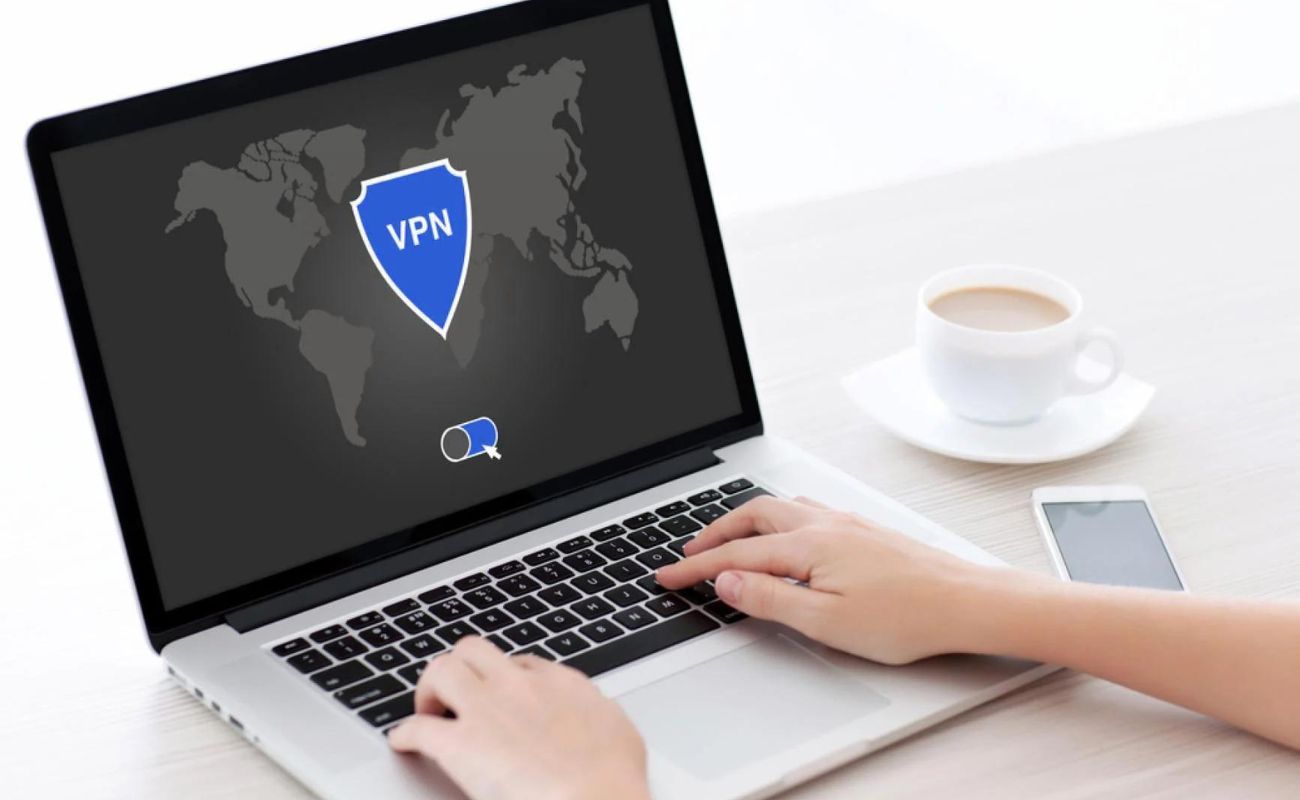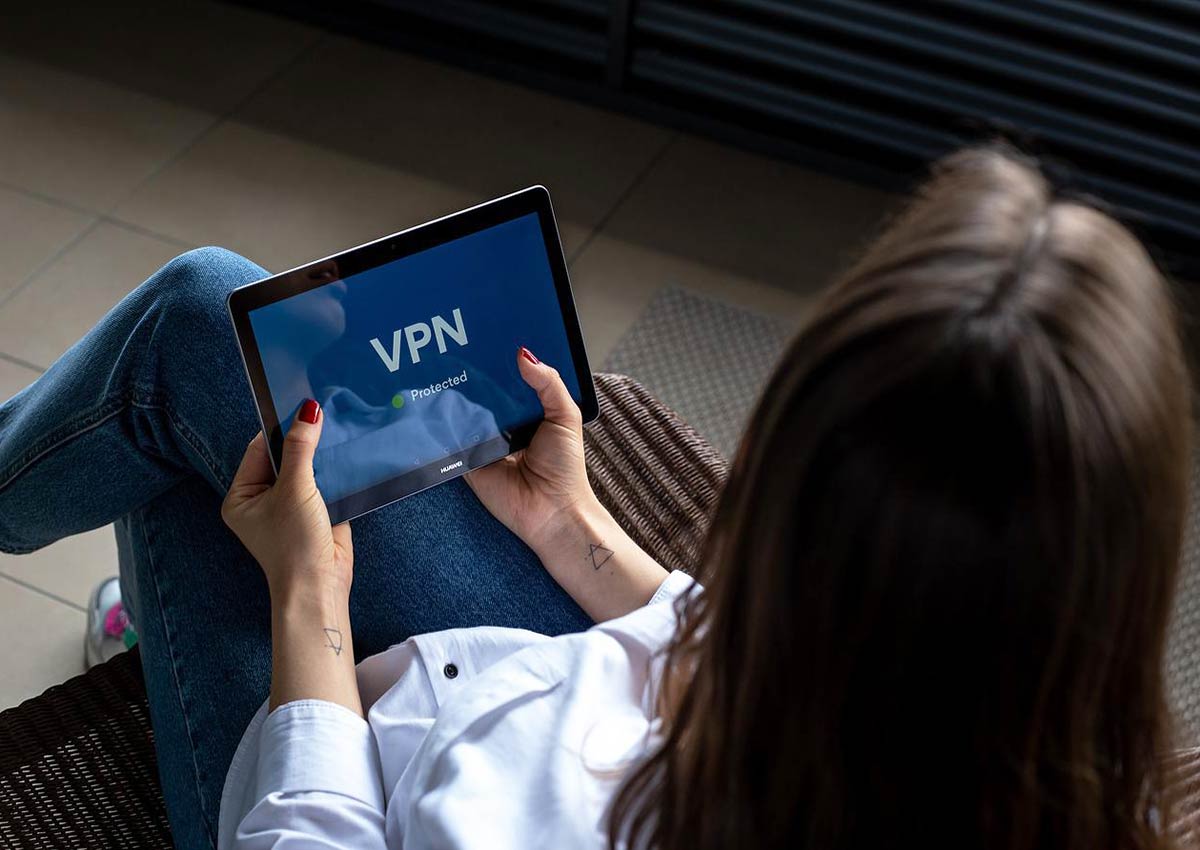Home>Software and Apps>Why Use A VPN


Software and Apps
Why Use A VPN
Modified: September 5, 2024
Discover the benefits of using a VPN for secure browsing and access to geo-restricted software and apps. Protect your online privacy and data with a reliable VPN service.
(Many of the links in this article redirect to a specific reviewed product. Your purchase of these products through affiliate links helps to generate commission for Techsplurge.com, at no extra cost. Learn more)
Table of Contents
What is a VPN?
A VPN creates a secure, encrypted connection between your device and a VPN server. This connection allows browsing the internet as if located elsewhere, useful for accessing geo-restricted content or bypassing internet censorship. Essentially, a VPN acts as a tunnel encrypting your internet traffic, making it difficult for third parties to intercept and read your data.
Read more: Why Is VPN Not Working On My Phone
How Does a VPN Work?
Subscription and Download
Subscribe to a VPN service and download the VPN software or app onto your device.
Connection Establishment
Launch the VPN app, which connects to a VPN server usually located in a different geographic location.
Encryption
Once connected, all internet traffic is encrypted, making any data sent or received scrambled and unreadable to anyone intercepting it.
Read more: Why Does VPN Not Work On Mobile Data
Routing
The encrypted data is routed through the VPN server before reaching its final destination on the internet.
Decryption
When the data reaches its destination, it is decrypted by the recipient, allowing normal reading and processing.
Benefits of Using a VPN
Enhanced Security
- Encryption: Encrypting your internet traffic makes it extremely difficult for hackers, ISPs, and other third parties to intercept and read your data.
- Protection Against Malware: Many VPNs come with built-in malware protection, safeguarding your device from malicious software.
Read more: Why Root Chromecast
Privacy
- Anonymity: Routing your traffic through a VPN server masks your IP address, making it harder for websites and advertisers to track your online activities.
- Data Protection: Even if your ISP logs your browsing history, a VPN ensures this information remains encrypted and unreadable.
Access to Geo-Restricted Content
- Streaming Services: Many streaming services like Netflix, Hulu, and BBC iPlayer are geo-restricted. A VPN allows bypassing these restrictions by making it appear as though accessing the service from a different country.
- Social Media and Websites: Some social media platforms and websites may be blocked in certain regions due to censorship. A VPN can help access these platforms by changing your IP address.
Public Wi-Fi Security
- Public Wi-Fi Risks: Public Wi-Fi networks are often unsecured, making them vulnerable to hacking. Using a VPN when connected to public Wi-Fi ensures your data remains encrypted and secure.
Bypassing Internet Censorship
- Government Restrictions: In some countries, internet censorship is prevalent. A VPN can help bypass these restrictions by allowing access to blocked websites and services.
Read more: Why Does Craigslist Block VPN
Speed and Performance
- Server Locations: The speed of your VPN connection largely depends on the location of the VPN server you are connected to. Choosing a server closer to your physical location can improve speeds.
- Optimized Servers: Some VPNs offer optimized servers specifically designed for streaming or gaming, enhancing performance.
Customer Support and Features
- Customer Support: Look for VPNs with robust customer support, including 24/7 live chat and email support. This ensures any issues encountered are quickly resolved.
- Additional Features: Some VPNs offer additional features such as ad-blocking, anti-tracking, and split tunneling, enhancing your overall online experience.
How to Choose the Right VPN
Security Features
- Encryption Protocols: Look for VPNs using strong encryption protocols like AES-256.
- Kill Switch: A kill switch ensures your internet connection drops if the VPN connection fails, preventing any unencrypted data from being sent.
Read more: Why Won’t My VPN Connect
Server Locations
- Global Coverage: Choose a VPN with servers in multiple locations around the world to ensure access to geo-restricted content.
- Server Speed: Opt for a VPN with fast servers to minimize latency and ensure smooth browsing.
Read more: Why Does Craigslist Block VPN
Speed and Performance
- Speed Tests: Conduct speed tests to determine which VPN servers offer the best performance.
- Optimized Servers: Select VPNs offering optimized servers for specific activities like streaming or gaming.
Customer Support
- 24/7 Support: Ensure the VPN provider offers 24/7 customer support via live chat or email.
- Knowledge Base: A comprehensive knowledge base can help troubleshoot common issues quickly.
Additional Features
- Ad-Blocking: Some VPNs come with built-in ad-blocking capabilities, enhancing your browsing experience.
- Anti-Tracking: Features like anti-tracking can help protect your personal data from being collected by advertisers.
Read more: How To Use NordVPN
Cost and Pricing
- Subscription Plans: Compare different subscription plans to find one fitting your budget.
- Free Trials: Look for VPNs offering free trials to test their services before committing to a paid plan.
Reviews and Reputation
- User Reviews: Read user reviews to get an idea of the VPN's performance and reliability.
- Reputation: Check the VPN provider's reputation online, looking for any red flags or negative reviews.
Common Misconceptions About VPNs
Speed Impact
Many believe using a VPN will significantly slow down their internet speeds. While some VPNs may affect speeds, many modern VPNs are optimized to minimize this impact.
Read more: Why Does My VPN Keep Turning On
Legal Concerns
Some individuals worry about the legal implications of using a VPN, especially if accessing content restricted in their region. However, using a VPN is generally legal and can be justified as necessary for protecting personal data and maintaining online anonymity.
Security Risks
There is a common misconception that VPNs themselves pose security risks. However, reputable VPN providers use robust encryption methods and adhere to strict security protocols to protect user data.
Additional Tips
- Regularly Update Your VPN Software: Ensure your VPN software is regularly updated to take advantage of the latest security patches and features.
- Use a VPN with a No-Logs Policy: Choose a VPN provider adhering to a no-logs policy, meaning they do not store any information about your online activities.
- Be Cautious of Free VPNs: While some free VPNs may seem appealing, they often come with significant limitations and may compromise your security by collecting and selling your data.
- Consider Multi-Device Support: If you have multiple devices, look for a VPN offering multi-device support to ensure all your devices are protected.
- Read User Reviews and Testimonials: Before committing to a paid plan, read user reviews and testimonials to get an idea of the VPN's performance and reliability.
By following these tips and understanding the benefits and mechanics of using a VPN, you can enjoy a safer and more private online experience.










